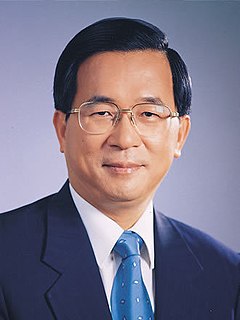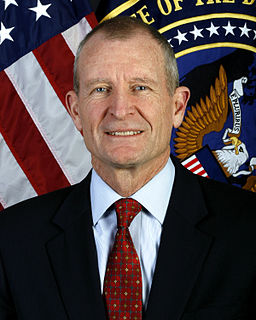A Quote by Chen Shui-bian
We sincerely ask the Beijing authorities across the Strait to view the election result from a positive perspective, to accept the democratic decision of the Taiwanese people.
Related Quotes
As Democratic losses mounted in Senate races across the country on election night, some liberal commentators clung to the idea that dissatisfied voters were sending a generally anti-incumbent message, and not specifically repudiating Democratic officeholders. But the facts of the election just don't support that story.
We have always had diverse channels of communication across the strait. These include not just official communications but also people-to-people contacts... There are differences between the positions of the two sides of the strait. In Taiwan, we have done our best to minimize that gap. I believe that the Chinese realize the goodwill we have put forth at the inauguration.
We can't attribute a long history of democratic traditions to Japan, either, but today Japan boasts a fully-fledged democracy in which governments change according to democratic procedures. It's no coincidence that the Taiwanese, Japanese, and South Korean economies are among the most innovative in Asia.






































